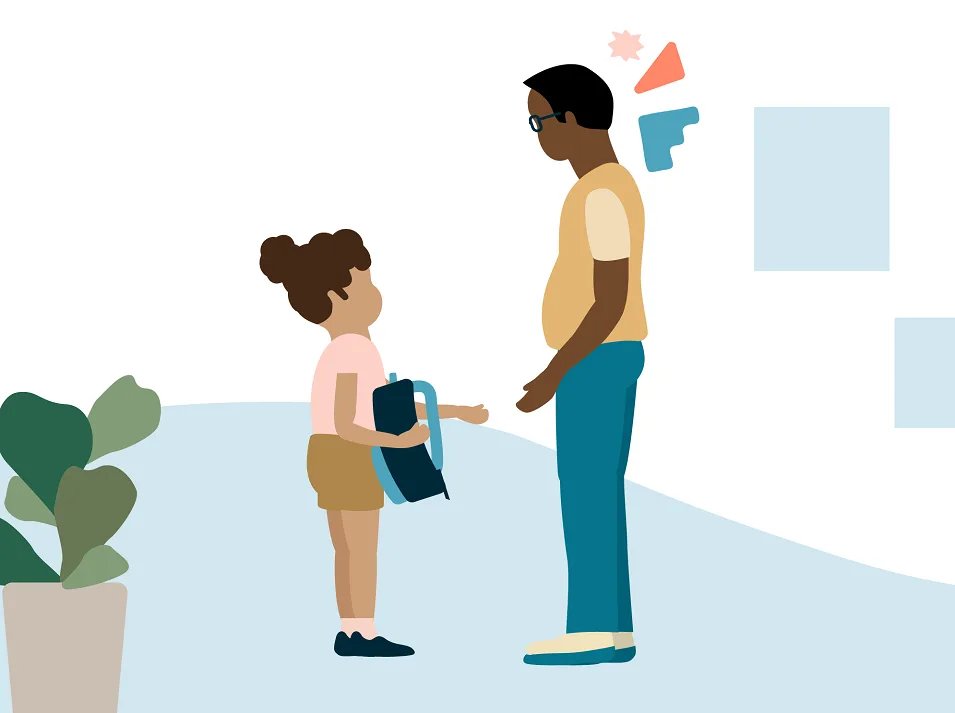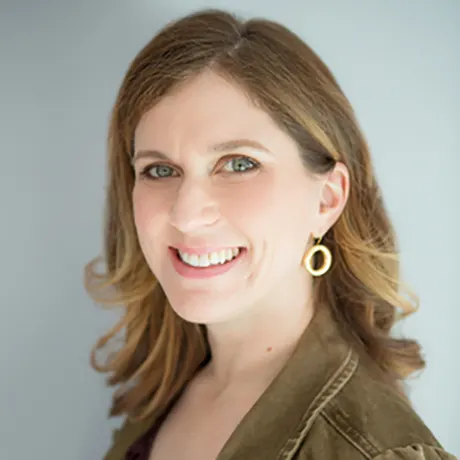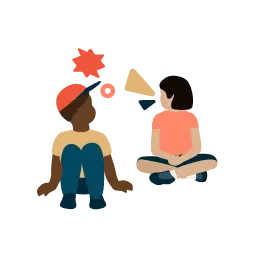A day in the life of a child with expressive language disorder

Meet Bree, a fifth grader with expressive language disorder. She’s a bright kid, but she has trouble expressing her thoughts. This impacts almost every aspect of her day. To see how expressive language disorder can impact kids, take a look at a typical day in Bree’s life.

7 a.m.
Bree needs a form so she can go on a field trip: “Dad, do you have that thing from school?” Her dad says: “What thing?” Bree can’t remember the phrase “field trip” and is having trouble describing what she needs: “My teacher wants that paper.” “What paper?” her dad asks.
“I need it now,” Bree says, raising her voice. But her dad still doesn’t know what she’s talking about or why she needs it right away.
Challenges related to expressive language:
Using vague words
10 a.m.
Bree is presenting her PowerPoint about dancer Misty Copeland. She loved reading about the ballerina, but her report is much shorter than the ones her classmates did. And she doesn’t notice that she wrote the wrong plural noun (“Misty has strong feets”) and verb tense (“I seed her dance video”).
At the end of class, the teacher pulls Bree aside and asks why she didn’t follow the direction about writing at least two points on each slide. Bree knows a lot about the dancer, but she has trouble expressing what she knows when she’s writing or speaking. So all she says is “I forgot.”
When the teacher asks another question, Bree worries that her classmates are listening. She tries to act cool. “I don’t know,” she says loudly and rolls her eyes. “It was a dumb book.”
Challenges related to expressive language:
Speaking and writing in very short sentences
Struggling with grammar
Acting out

1 p.m.
In science class, Bree is working in a small group to make a battery out of a potato. “Hand me an alligator clip,” her partner says. Bree looks confused.
“You know, the metal thing shaped like an alligator’s head,” the partner says. Bree still looks confused. “You know what an alligator looks like, don’t you?” her other partner asks.
Today is Bree’s turn to be the note-taker, and her partners get annoyed when they see her page is still blank. She has trouble summing up what they’re talking about. But when they tell her exactly what to write, she does OK.
Challenges related to expressive language:
Having a limited vocabulary
Struggling with paraphrasing and taking notes

2:50 p.m.
Bree never says much on the ride home with her friends. It’s hard for her to answer their questions or to bring up a new topic. So mostly she just copies what they say: “I did that too.”
This strategy helps her be part of the conversation. But sometimes her friends get annoyed: “Seriously, Bree, all you ever say is ‘Me too, me too, me too!’”
Challenges related to expressive language:
Trouble joining in conversations
Copying what others say

8 p.m.
Dad is not happy. “What happened with your book report?” he asks. “The teacher emailed me today. Why do you keep giving her so much sass?”
Bree struggles to describe what happened. “Did you even read the book?” her dad asks. “Yes!” she says as she collapses into his arms and cries.
“OK, OK,” he says. “Let’s talk with the teacher tomorrow. The three of us will work together. We’ll find ways to help you express yourself.”
Challenges related to expressive language:
Trouble telling stories in a logical way
Low self-esteem
About expressive language disorder
Expressive language disorder makes it hard to use language. This includes speaking and writing. It has nothing to do with how smart someone is. It’s a difference in how the brain processes or uses information about words.
Kids who struggle to use language often have trouble understanding what other people say too. They can be diagnosed with a language disorder at a very young age, sometimes before they start preschool.
Kids don’t outgrow it, and their trouble with language can affect how they behave in school. It might seem like they’re choosing to be vague or defiant. But it could be that they don’t know how to answer the question.
Expressive language disorder can sometimes get overlooked, especially if teachers think kids are just acting out or if kids are struggling with reading or other academic skills. For kids who speak a language other than English at home, trouble with expressive language can look like trouble learning English.
But with speech therapy and other support, all kids can get the help they need for their expressive language challenges and thrive in school and in life.



